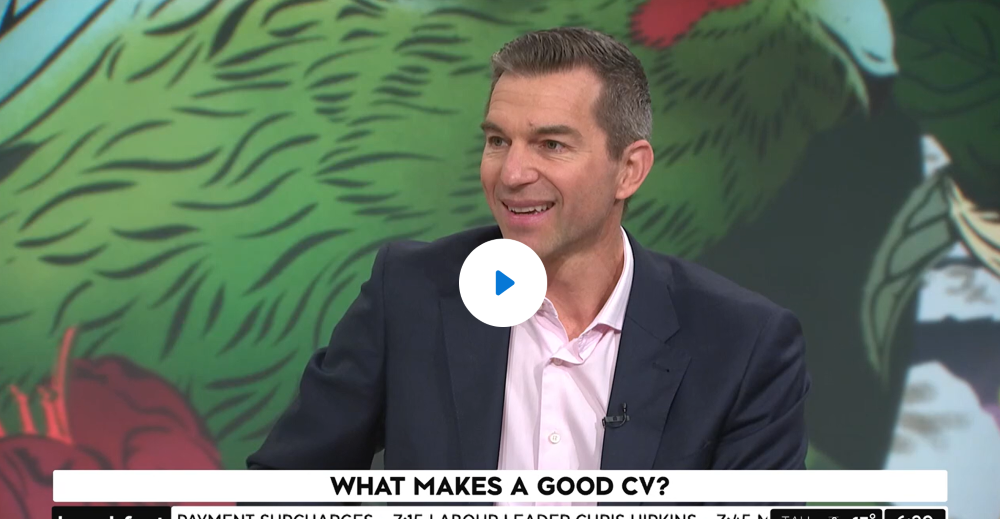September 13, 2024
Becoming The Obvious Choice For Promotion
by
Sam Shosanya from Seed Business Associates
Advancing in your career isn't just a matter of putting in more hours; it's about making smarter choices. Five simple habits set you apart: punctuality, saying please and thank you, following through, and meeting deadlines - always. Simple but not easy. Humility, hunger, and people smarts are the trifecta of leadership potential. Consistency is key. Make these behaviours second nature, and you'll be the obvious choice for promotion.

Before we get into this, I want to reinforce an idea that will be unpopular in some quarters. Whatever your view of the world, you are competing – every moment of every day. In fact, our whole life is one long competition. We have white blood cells competing with disease to keep us alive. Animals compete with humans for habitat, plant life competes with animals in the same realm. It never stops but we’re built to compete….
So, if you were brought up in a world where ‘taking part’ was a success in itself – shake that off now!! It won’t help you at work or life in general. COMPETE!
Now, there's a way to become the undeniable, can't-ignore-me candidate for your next big promotion. And no, it doesn't involve working 80-hour weeks or sacrificing your personal life on the altar of career advancement.
Too often, people underestimate the importance of simple things, so I’ll give you a heads-up now on 5 simple things that will set you apart if you do them consistently. Ready?
1. Turn up on time (5 minutes early is the goal).
2. Say ‘Please’.
3. Say ‘Thank you’.
4. Do what you said you would do; and
5. Do it by when you said you would do it.
Simple. But not easy. However, consistently meeting these goals will cause you to outperform 9/10 competitors.
Sounds too good to be true? Well, buckle up, because I'm about to step through these five plus 5 more 10 powerful strategies that will transform you into the logical choice for promotion opportunities. These strategies are a unique blend of my take on the timeless wisdom of numerous mentors/ bosses - and powerful insights from Patrick Lencioni's "The Ideal Team Player."
But first, let's deal with the obvious, the harsh truth; You have to be nailing the current role. This goes without saying but competency isn’t a high standard to achieve. And what if several of you meet this mark?
That’s where this blog post comes in…..
Even being good at your job isn't enough anymore. Technical skills and experience are just the price of entry. To truly stand out and become promotion-worthy, you need to embody a combination of professional competence, interpersonal skills, and leadership qualities that make you absolutely indispensable.
And that's exactly what we're going to tackle today.
So, are you ready to create a gap between you and your colleagues to become the obvious choice for that promotion you've been eyeing? Let's dive in!
1. The Magic Words: "Please" and "Thank You"
Remember when your parents drilled these words into you as a kid? Well, turns out they were setting you up for career success all along!
Saying "please" when making requests shows respect and consideration for others. It sets a collaborative tone and makes people more likely to want to help you. And "thank you"? It's the secret sauce of motivation. When you genuinely appreciate others' efforts, they'll move mountains to help you succeed.
And the best leaders consistently enjoy discretionary effort from their colleagues and team members. Leaders who create positive, respectful environments are magnetic. They attract top talent, inspire loyalty, and get things done. By consistently using these magic words, you're subtly positioning yourself as that kind of leader.
2. Punctuality: Your Secret Weapon
Ever noticed how the most respected people in your organisation are always on time? That's no coincidence. Now, notice I said most respected, not the most senior! Arriving on time (or better yet, a few minutes early) for meetings and appointments is a clear signal of your reliability and respect for others' time. It shows you're organized, dependable, and take your commitments seriously.
As you climb the career ladder, your ability to manage time becomes increasingly crucial. When you have a meeting with powerful leaders, any such meeting is an incredibly expensive undertaking for the organisation; a hidden cost that would shock people if the financial impact of late or overrunning meetings were tracked. Consistently being punctual demonstrates that you're ready to handle the demands of a more senior role. And that you are cognisant of the real cost of people’s time.
My top tip which I'll mention again: Aim to arrive 5-10 minutes early for everything. Use that time to collect your thoughts, review your notes, or simply take a deep breath. You'll start every interaction calm, prepared, and ready to impress.
3. Follow Through: The Trust Builder
We've all worked with that person who's full of big promises but rarely delivers. Don't be that person. When you say you'll do something, do it. No excuses, no delays. This simple act of following through builds an unshakeable foundation of trust with your colleagues and more senior leaders.
If you run into unavoidable issues that lead to delay – or just might lead to a delay – let the relevant people know as soon as you do. Manage expectations, agree to a new time for delivery if needed – then deliver! Never communicate a missed deadline of the day the work is due – NEVER. Surprises of that nature are inexcusable, unprofessional and point to disorganisation.
Trust is the currency of leadership. By consistently delivering on your promises, you're showing that you can be relied upon to handle greater responsibilities. That's exactly what decision-makers look for when considering promotions. Be intentional about this aspect of your personal brand. Keep a "commitment journal." Note every promise you make, no matter how small. Review it daily and make sure you're hitting every single one.
4. Timeliness: The Productivity Booster
Doing what you said you'd do is great. Doing it when you said you'd do it? That's career gold. Meeting deadlines isn't just about ticking boxes. It's about maintaining momentum, respecting others' time, and proving you can manage your workload effectively – even under pressure.
Look, as you move up in your career, the stakes get higher, and deadlines become more critical. Seniority means more people rely on you to do your part and keep things moving. Certainly, in previous roles as the CEO of a business, delays not only had implications for the team but also for other stakeholders like customers and strategic partners.
Demonstrating that you can consistently deliver on-time signals that you're ready for more complex, time-sensitive responsibilities. To avoid overwhelm, break big projects/ tasks into smaller, manageable tasks with their own mini-deadlines. Everything counts - each timely delivery as well as every missed deadline.
5. Humility: The Unexpected Superpower
In his book "The Ideal Team Player," Patrick Lencioni identifies humility as a critical trait for effective leaders. But what does humility actually mean in a professional context?
It's about recognising the contributions of others, admitting when you're wrong, and prioritising team success over personal glory. It's not about downplaying your abilities, but rather about lifting others up and fostering a collaborative environment. Humble leaders create strong, cohesive teams. They're approachable, open to feedback, and focused on collective success. These are qualities that decision-makers look for when considering candidates for promotion.
I’d encourage you to practice giving credit to others publicly and often. And when you provide this feedback, be specific not just about the action but the attitude displayed. If you can link this back to corporate or team values, even better! When something goes wrong, be the first to take responsibility, if it belongs. Your team (and your senior colleagues) will notice and appreciate it.
6. Hunger: The Drive to Excel
Lencioni's second key trait is "hunger" – a strong work ethic and a drive to go above and beyond. Hungry professionals are never satisfied with the status quo. They're always looking for ways to contribute more, improve their skills, and take on new challenges.
Organisations love employees who show initiative and a “relentless pursuit of excellence”. These are the people who drive innovation and growth – exactly the kind of individuals they want in leadership positions.
Here’s something I used extensively throughout my career. Volunteer for challenging projects, especially ones that stretch your abilities. Not only will you learn new skills, you’ll be more visible, likely meet new people, learn more about the organisation and you'll also demonstrate your hunger for growth and success.
7. People Smarts: The Career Accelerator
The third trait in Lencioni's trifecta (Humble, Driven & Smart) is being "smart" – but not in the traditional IQ sense. He's talking about being smart in using emotional intelligence and interpersonal savvy.
This means being aware of others' feelings, communicating effectively, and navigating workplace dynamics with tact and sensitivity. It's about reading the room, understanding unspoken cues, and adapting your approach to different personalities. As you move up the career ladder, your ability to manage relationships becomes increasingly important. Interpersonally smart leaders can build strong teams, handle conflicts gracefully, and create positive work environments.
I thankfully had someone clearly explain this early in my career. Think about it – the more people in your team, the greater your potential impact on the organisation. The greater your potential impact, the more you earn. That’s why the CEO is paid the most, not because he or she is technically the best or even the smartest. They are paid to create the environment, secure the talent, provide direction and nail the results. All through the right people, in the right roles…..
So, make a point of active listening in your daily interactions. Try to understand not just what people are saying, but why they're saying it. Be curious and listen more than you speak. This will dramatically improve your interpersonal skills.
8. Ownership: The Leadership Hallmark
Taking ownership means being accountable for your work and your team's outcomes – both the successes and the failures. It's about stepping up when challenges arise and being willing to make tough decisions. Ownership is a clear indicator of leadership potential. When you take responsibility for your actions and your team's results, you demonstrate that you're ready to lead and handle the pressures of a higher position.
I was told early in my career that I would make it really easy for my boss to promote me if I was already operating at the level above before I actually got there. Makes sense, right? Now, some will be thinking “Yeah but it means I’m doing work that is above my pay grade”. My response to that comes courtesy of Zig Ziglar, an old favourite of mine. It’s a bit of a tongue twister but it does make sense:
“If you do more than you are paid to do, the time will come when you are paid more for what you do”.
Seriously, it’s just a matter of time. Nobody wants to lose someone who performs like this.
9. Collaboration: The Team Multiplier
I’ve touched on this already. Great leaders don't just perform well individually – they elevate the performance of their entire team. They create an environment where everyone feels valued and encouraged to contribute their best efforts. In today's complex, hyper-competitive business world, collaboration is key to success. Leaders who can unite diverse teams around common goals are invaluable to their organisations. By demonstrating your ability to facilitate collaboration, you're showing that you're ready for a bigger leadership role – and have grasped the true nature of leadership.
Look for opportunities to bring people together on projects. Facilitate brainstorming sessions, encourage open communication, and help resolve conflicts when they arise. Your ability to create a collaborative environment will not go unnoticed.
10. Consistency: The Essential Ingredient
Here's the thing about all these strategies – they're not one-time tricks. The real power comes from consistently applying them, day in and day out.
It's about making "please" and "thank you" a natural part of your vocabulary. It's about being punctual not just for the big presentation, but for every meeting. And meeting all deadlines, while following through on your commitments, big and small, every single time. Consistency builds trust, reinforces your reputation, and creates a pattern of behaviour that others come to rely on. It's what transforms these strategies from occasional actions into character traits and a core part of your unique philosophy that defines you as a leader.
Choose one strategy to focus on. Practice it consciously until it becomes second nature. Be compassionate with yourself. If it doesn’t happen immediately, remember patience is more important than early progress. Once it becomes an embedded habit, move on to the next one. Over time, you'll internalise all these behaviours, making you the obvious choice for promotion.
OK, job done – 10 powerful strategies to become the obvious choice for your next promotion.
To learn more about Seed Business Associates and their Executive & Business leadership development consulting services, get in contact with Sam here.




